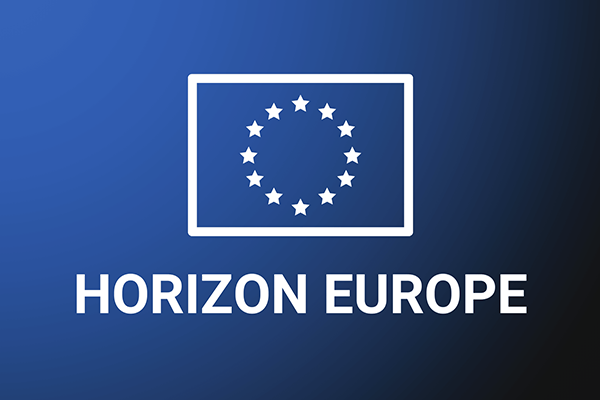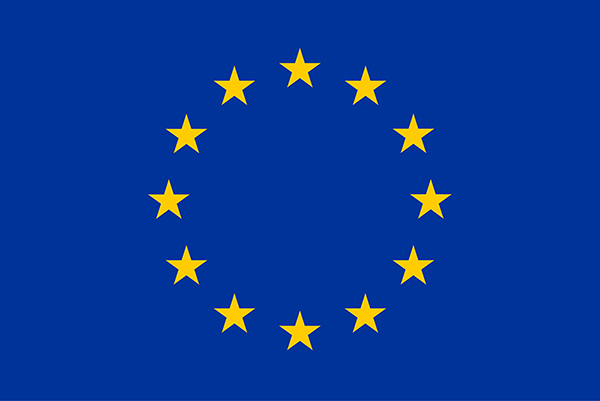
LEI koordinuojamas projektas „Ateities branduolinės energetikos technologijų licencijavimo harmonizavimo link“ (HARMONISE) (angl. k. – „Towards harmonisation in licensing of future nuclear power technologies in Europe“).
Trumpas projekto aprašas:
Naujų branduolinės energetikos technologijų licencijavimo klausimas itin aktualus, mat esama licencijavimo sistema ir branduolinės energetikos technologijų reguliavimas įvairiose šalyse skiriasi. Šiuo metu yra kuriamos inovatyvios branduolių dalijimosi (angl. fission) principu veikiančios technologijos, pavyzdžiui, mažieji moduliniai reaktoriai, ir įgauna pagreitį branduolių sintezės (angl. fusion) įrenginių projektavimas ir įgyvendinimas.
Projekto tikslas – pasirengti ateities technologijų licencijavimui įvertinant būsimų technologijų specifiką ir galimus licencijavimo ir reguliavimo reikalavimų trūkumus įvairiose šalyse. Bus nagrinėjami tokie klausimai kaip rizika pagrįstas sprendimų priėmimas (angl. risk-informed decision making), įvairių šalių patirtis inovatyvių branduolinės energetikos objektų licencijavime, ir bendrų standartų pritaikymo galimybės.
Projekte dalyvauja 17 partnerių iš 11 Europos valstybių, įskaitant ir ES Jungtinį tyrimų centrą. Planuojamas aktyvus bendradarbiavimas ne tik tarp projekto partnerių, bet ir bendradarbiavimas su tokiomis tarptautinėmis organizacijomis kaip TATENA, SNETP, WENRA, ETSON, ir kt. Įgyvendinus projektą bus pasiūlytos metodikos, kurios leistų pasirengti inovatyvių branduolinės energetikos technologijų licencijavimui ir standartizavimui Europoje.
Projekto aprašas anglų k.:
Innovative fission and fusion installations encompass novel technologies that drive the need for developing new licensing procedures. The current nuclear regulatory framework appeared in the 1960s for licensing early NPP designs and since then it has undergone substantial modifications because of major nuclear accidents and in response to challenges posed by the licensing of Generation III designs. There is a broad agreement on the need to review the existing regulatory framework, incorporate novel concepts and endow it with sufficient capabilities for assuring safety during design and enabling proper regulatory oversight during operation of innovative facilities. Departing from a prescriptive-based to a performance-based approach in nuclear regulatory regimes needs examination under the prism of conformity with the safety objectives of future fission and fusion reactors considering their distinctive properties based on their related “source terms”. While fusion devices are in an early development stage, they can be the subject of a study since the ITER safety demonstrations cover all accident scenarios and its top-level safety objectives are based on international guidelines similar to those adopted by nuclear fission facilities.
Despite the broad consensus, the legislations in different countries maintain diverse definitions and interpretations in their application of basic safety principles while being consistent with the IAEA Safety Standards.
In the framework of the Euratom Research and Training Programme, HARMONISE will study relevant research and cooperation activities in standardization and nuclear safety considering also the lessons learnt from the stress tests performed in the EU. The project is coordinated by LEI and involves nine ETSON members along with partners representing research organisations, regulators and industry.
Taking as a basis the IAEA fundamental safety objective, HARMONISE has set five Objectives:
- Objective 1: To analyse preliminary safety assessments of innovative fission and fusion installations
- Objective 2: To peruse the licensing needs for innovative nuclear installations
- Objective 3: To examine risk-informed, performance-based (RIPB) approaches in licensing reviews and regulatory decision-making
- Objective 4: To delimit harmonisation and standardisation on component assessments, methodologies, codes and standards
- Objective 5: To learn from earlier experience in harmonisation efforts
Identifying the licensing needs for innovative technologies incorporated in future fission and fusion reactors requires an exhaustive analysis to determine whether, or not, current codes and standards address these needs. New technologies need to be detailed and grouped into different categories depending on the qualification and licensing process. In order to ensure that this analysis is performed in a robust manner, HARMONISE will solicit the expertise of Standards Development Organisations responsible for code development.
HARMONISE will take advantage of the accomplishments achieved by current and earlier research and cooperation initiatives in standardisation and nuclear safety, in EURATOM and outside. An extensive consultation process will take place with ENSREG, WENRA as well as ETSON to benefit from the progress made in cooperative initiatives such as the ENSREG National Action Plans, the WENRA RHWG, the NEA CNRA and the WNA CORDEL Working Group.
The project findings will be disseminated and reported to Member States’ nuclear safety regulators with the aim to facilitate their early involvement regarding safety verifications and licensing of future fission and fusion installations.
Raktažodžiai:
Fission, Fusion, Licensing, Codes and Standards, Risk Informed Performance Based
Akronimas: HARMONISE
Projekto ID: 101061643
Projekto numeris LEI vidaus apskaitoje: 17-84.22.25 p
Kvietimas: HORIZON-EURATOM-2021-NRT-01
Bendra projekto vertė: 2.5 mil EUR (LEI dalis: 258.553,75 EUR)
Koordinatorius: LIETUVOS ENERGETIKOS INSTITUTAS, Lietuva
Partneriai:
- GESELLSCHAFT FUR ANLAGEN UND REAKTORSICHERHEIT (GRS) gGmbH, Vokietija
- TEKNOLOGIAN TUTKIMUSKESKUS VTT OY, Suomija
- NATIONAL CENTER FOR SCIENTIFIC RESEARCH „DEMOKRITOS”, Graikija
- COMMISSARIAT A L ENERGIE ATOMIQUE ET AUX ENERGIES ALTERNATIVES (CEA), Prancūzija
- STATNI USTAV RADIACNI OCHRANY v.v.i. (SURO), Čekijos Respublika
- FEDERAAL AGENTSCHAP VOOR NUCLEAIRECONTROLE / AGENCE FEDERALE DE CONTROLE NUCLEAIRE FEDERAL AGENCY FOR NUCLEAR CONTROL FANC AFCN, Belgija
- INSTITUT JOZEF STEFAN (JSI), Slovėnija
- STUDIECENTRUM VOOR KERNENERGIE / CENTRE D’ETUDE DE L’ENERGIE NUCLEAIRE, Belgija
- STATE ENTERPRISE STATE SCIENTIFIC AND TECHNICAL CENTER FOR NUCLEAR AND RADIATION SAFETY (SSTC NRS), Ukraina
- REGIA AUTONOMA TEHNOLOGII PENTRU ENERGIA NUCLEARA (RATEN), Rumunija
- BEL V, Belgija
- AFCEN, Prancūzija
- AGENZIA NAZIONALE PER LE NUOVE TECNOLOGIE, L’ENERGIA E LO SVILUPPO ECONOMICO SOSTENIBILE (ENEA), Italija
- ANSALDO NUCLEARE SPA (ANN), Ispanija
- LISTO BVBA, Belgija
- JRC – JOINT RESEARCH CENTRE – EUROPEAN COMMISSION, Belgija
 Projektas finansuojamas EURATOMO branduolinės energijos tyrimų ir mokymų programos lėšomis, dotacijos sutartis Nr. 101061643.
Projektas finansuojamas EURATOMO branduolinės energijos tyrimų ir mokymų programos lėšomis, dotacijos sutartis Nr. 101061643.
Projekto vykdytojai
| Vardas, pavardė | kabinetas | tel. nr. | el. paštas |
|---|---|---|---|
|
Instituto atstovas |
|||
| Egidijus Urbonavičius | 405/1-AK | +37037401914 | Egidijus.Urbonavicius@lei.lt |
|
Projekto vykdytojai |
|||
| Egidijus Babilas | 431-AK | +37037401850 | Egidijus.Babilas@lei.lt |
| Sigitas Rimkevičius | 424-AK | +37037401924 | Sigitas.Rimkevicius@lei.lt |
| Roman Voronov | 317-AK | +37037401945 | Roman.Voronov@lei.lt |





